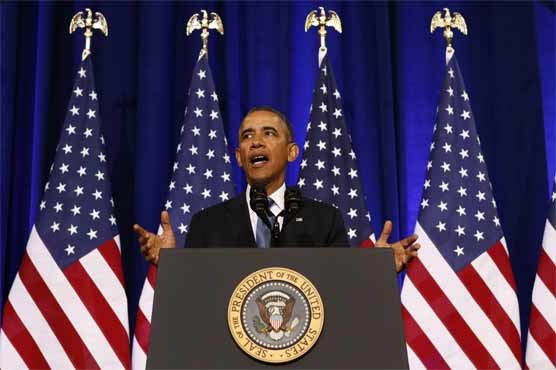(VOVworld) – After 11 years of negotiation, Iran and world powers finally reached a comprehensive deal on Iran’s nuclear program. It’s a great policy success for both US President Barack Obama and Iranian President Hassan Rouhani. The historic accord is expected to change the situation in the Middle East.

The Iran's nuclear deal is a policy success for both the US and Iran |
Under the accord signed on July 14 Iran will reduce its current stockpile of low-enriched uranium and cut two thirds of its centrifuges. Unused centrifuges will be put in a stockpile under the supervision of the International Atomic Energy Agency (IAEA). The agency will also regularly monitor all of Iran’s nuclear facilities. In return US and EU sanctions against Iran will be lifted. These sanctions can be resumed within 65 days if Iran violates the agreement. The UN’s ban on the purchase and sale of conventional weapons will be removed in five years, while the embargo on the import and export of ballistic missiles will be in place for 8 years.
Victory of resilient diplomatic efforts
The international community has widely applauded the accord, saying the historic agreement has settled an issue which was at an impasse for 11 years. It was a huge success for both US President Obama and Iranian President Rouhani. The accord will pull Iran out of isolation and improve its economy by opening its petroleum to the world. The Obama administration has avoided military conflict with unforeseeable consequences in the Middle East.
Analysts say the accord between Iran and 6 major world powers was a victory of resilient diplomatic efforts with prominent roles played by the US and Iranian Presidents. President Obama once said it was vital to balance isolation and engagement, pressure and incentives. He repeated a point that "sanctions without outreach, condemnation without discussion, can carry forward only a crippling status quo.”
While his predecessor took a tough line with countries in what he called the axis of evil, Obama has adopted a more open approach. He made a telephone call to President Rouhani in September, 2013, paving the way for several negotiations over the next 21 months, which concluded with the historic agreement on July 14, 2015.
President Rouhani, a moderate and centrist political figure, has led Iran to a new period of relations with the US with his flexible policies compared to the hostile views of former President Mahmoud Ahmadinejad.
Open opportunities for investment
The agreement, which is waiting for necessary procedures for enforcement, has inspired international investors. Companies in China, the EU, and Russia have welcomed the accord. With 77 million people, Iran is a big potential market. It has the world’s fourth largest oil reserves and second largest natural gas reserves after Russia.
After years of sanctions, Iran has a great built-up demand for goods and services. Financial experts predict that eased sanctions will open Iran’s securities market to foreign investors with an estimated capital of 1 billion USD in 2016.
Impact on Middle East security
The nuclear accord is expected to have a major impact on political issues in Syria, Iraq, and Yemen. Iran has great influence with the government of Syrian President Bashar al-Assad and with the Houthi rebels in Yemen, and is a major force in the fight against IS.
Observers say that with Iran’s support, it would be possible to make a change in Syria and possibly suppress the Houthi rebels in Yemen. Cooperating with Iran will give the US new options in the Middle East.
The signing of the agreement has opened a new chapter in Iran’s engagement with the world. The world is waiting to see what will come of this new opportunity for cooperation and development.